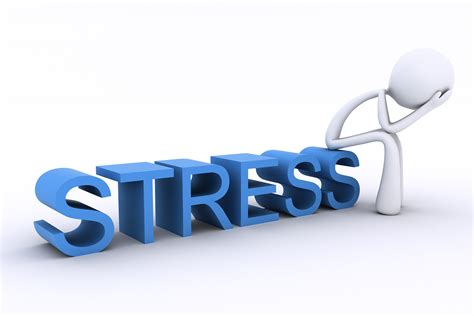What actionable steps optimize male hormones for sustained energy & muscle growth?

Unlocking Peak Male Performance: A Hormonal Blueprint
For men aspiring to achieve sustained energy levels and consistent muscle growth, understanding and optimizing key hormones is paramount. These internal messengers dictate everything from metabolism and mood to strength and recovery. While genetics play a role, numerous actionable steps can significantly influence your hormonal profile, propelling you towards your fitness and wellness goals.

The Crucial Role of Hormones in Men’s Health
Several hormones are central to male vitality. Testosterone, often considered the primary male hormone, is critical for muscle mass, bone density, libido, and energy. Its decline can lead to reduced energy, decreased muscle, and increased body fat. Growth Hormone (GH) supports cell regeneration, growth, and metabolism, playing a direct role in muscle repair and fat utilization. Cortisol, the stress hormone, while essential in acute situations, can become detrimental at chronic high levels, inhibiting testosterone production and promoting fat storage. Optimizing this delicate balance is key.
Pillars of Hormonal Optimization
1. Nutrition: Fueling Your Endocrine System
Your diet is the bedrock of hormonal health. Prioritize nutrient-dense whole foods over processed options. Adequate protein intake is vital for muscle repair and growth, providing the amino acids necessary for hormone synthesis. Healthy fats, particularly monounsaturated and polyunsaturated fats (from avocados, nuts, seeds, olive oil), are crucial precursors for steroid hormone production, including testosterone.
Ensure a rich intake of micronutrients like zinc, magnesium, and Vitamin D. Zinc is directly involved in testosterone production, magnesium aids in sleep and muscle function, and Vitamin D acts as a powerful steroid hormone, impacting testosterone levels, mood, and immune function. Aim for a balanced intake of complex carbohydrates to fuel workouts and aid recovery without causing drastic blood sugar spikes.

2. Strategic Exercise: Lift, Sprint, Recover
Not all exercise is created equal when it comes to hormone optimization. Resistance training, particularly compound movements like squats, deadlifts, bench presses, and rows, significantly stimulates testosterone and growth hormone release. Aim for 3-5 sessions per week, focusing on progressive overload.
High-Intensity Interval Training (HIIT) can also boost GH and testosterone, but should be used sparingly (1-2 times a week) to avoid overtraining. Chronic endurance training, on the other hand, can sometimes elevate cortisol, potentially dampening beneficial hormone levels. Balance intensity with adequate rest and recovery.
3. Prioritize Quality Sleep
Sleep is arguably the most underrated hormone optimizer. The majority of testosterone and growth hormone production occurs during deep sleep phases. Chronic sleep deprivation (less than 7-9 hours) can drastically reduce testosterone levels and elevate cortisol. Establish a consistent sleep schedule, create a dark, cool, and quiet sleep environment, and limit screen time before bed to improve sleep quality.

4. Master Stress Management
In today’s fast-paced world, chronic stress is pervasive. Sustained high levels of cortisol, the stress hormone, can suppress testosterone production, break down muscle tissue, and lead to increased abdominal fat. Incorporate stress-reduction techniques into your daily routine: meditation, deep breathing exercises, yoga, spending time in nature, or engaging in hobbies you enjoy. Prioritizing mental well-being directly supports your physical and hormonal goals.

5. Smart Supplementation (If Needed)
While a whole-food diet is primary, certain supplements can complement your efforts. Vitamin D3, magnesium, and zinc are common deficiencies that, when addressed, can positively impact hormone levels. Creatine monohydrate supports strength and muscle growth by enhancing ATP production. Adaptogens like Ashwagandha can help manage stress and potentially lower cortisol. Always consult with a healthcare professional before starting any new supplement regimen.
6. Lifestyle Factors: Avoid Endocrine Disruptors
Beyond diet and exercise, evaluate your lifestyle for factors that negatively impact hormones. Excessive alcohol consumption can impair testosterone production. Exposure to endocrine-disrupting chemicals (EDCs) found in plastics (BPA, phthalates), pesticides, and certain personal care products can mimic or block hormones, wreaking havoc on your system. Opt for natural alternatives, filtered water, and fresh, organic produce where possible.

Conclusion: A Holistic Approach for Lasting Results
Optimizing male hormones for sustained energy and muscle growth is not about quick fixes or a single magic pill. It’s a holistic, integrated approach that encompasses consistent effort across multiple lifestyle pillars. By systematically addressing nutrition, strategic exercise, prioritizing sleep, managing stress, smart supplementation, and minimizing exposure to harmful chemicals, men can naturally elevate their hormonal profile, unlocking their full potential for vitality, strength, and overall well-being. Commitment to these actionable steps will yield not only physical benefits but also an improved quality of life.









